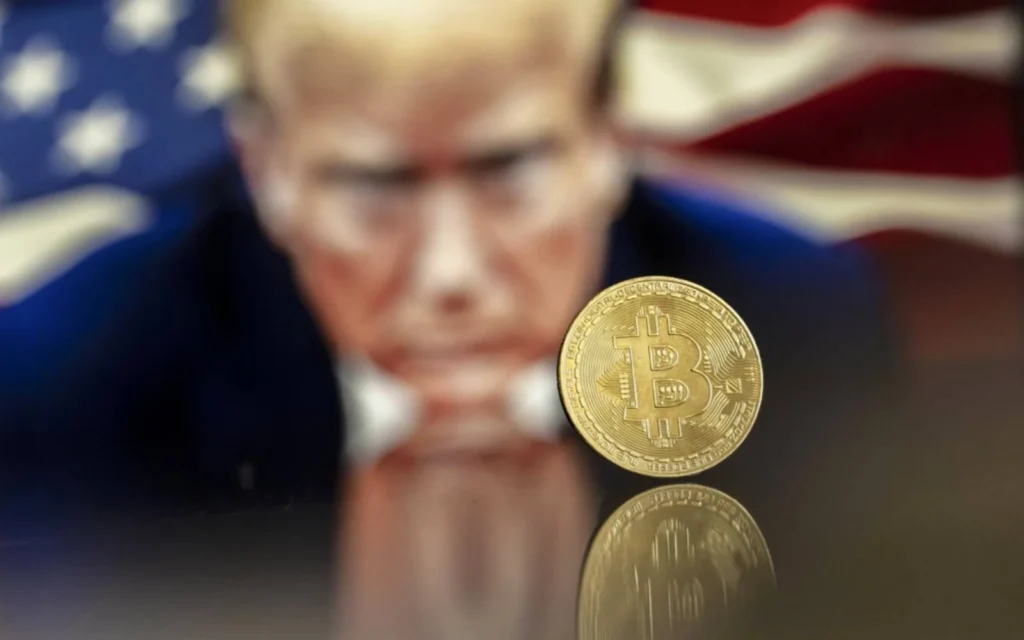
Donald Trump's administration is expected to turn the US into a crypto-friendly hub using a range of changes to tax policies. Here’s the best guess of what that means.
For some time I’ve talked about Donald Trump’s ambition to be the crypto President and, as his inauguration on January 20th approaches, it makes you wonder what that means. Will he endorse bitcoin and DOGE? Will future legislature be issued as NFTs? Could America buy Greenland through an ICO?
Well, those questions won’t be answered here, but one question that can be answered is what it might mean to taxation, the IRS and the average American. This is something a friend has spent some time studying and they have kindly allowed me to share this here so, for my American audience, here’s what you need to know.
The Proposal: elimination of Capital Gains Tax on US-issued crypto
Donald Trump is set to take office on January 20th 2025, and his tenure is expected to be crypto-friendly. According to these reports, his administration plans to remove capital gain taxes issued by US-based organizations.
In the United States, the Internal Revenue Service (IRS) taxes cryptocurrencies. The bureau classifies crypto as a digital asset, generally treating it as stocks, bonds, and other capital assets. Therefore, crypto gains are taxed as capital gains or income based on how you acquired and held them.
All cryptocurrency forms are currently subject to the same IRS rules. However, industry insiders expect a change now. According to them, the Trump administration may eliminate Capital Gains Tax on cryptocurrencies issued by US-registered companies. If this happens then American investors would avoid taxes on profits from a range of specific cryptocurrencies is the view of those in the know.
During the presidential election campaign, Trump spoke about the crypto industry in a good light. In one of his rallies, he pledged to make the United States “the crypto capital of the planet.” Therefore, a proposed tax reform bill aligns with the administration's goal of driving innovation within the country's economy.
A bill like this would fundamentally alter the crypto trading platform ecosystem, domestically and globally, as the IRS makes it clear crypto can be subject to Income Tax or Capital Gains Tax, depending on the transaction made, at this time. US Investors currently pay taxes on crypto investments ranging from 0% to 37% based on their earnings and how long they’ve held the coin.
Trump’s plan would eliminate capital gains taxes on American-made cryptocurrencies, making them more popular for everyday exchanges. As a result, more US citizens would be inclined to use these tokens in order to avoid taxes on them.
Trump’s plan doesn’t cover the majority of tokens, but it does cover some popular cryptocurrencies, including:
- Algorand (ALGO)
- Ripple (XRP)
- Hedera Hashgraph (HBAR)
- Constellation (DAG)
- Solana (SOL)
- Cardano (ADA)
According to sources within Trump’s transition team, the proposal would mandate that crypto-issuing firms register in the US. However, there will be a pathway for existing crypto businesses to move to the US and take advantage of this new tax deduction.
If the proposed tax reform is passed, several companies will try to venture into cryptocurrencies. It would also open the door to foreign investors trying to leverage the favourable tax and regulatory environment. If the prosperous US economy booms, other nations will try to copy the policy to become crypto-friendly hubs.
Specifically, President-elect Trump has expressed an openness to reevaluating Bitcoin taxation. In a recent interview, he criticised the current tax policies stating that “they have them paying tax on crypto, and I don’t think that’s right.”
This move could put the US on a collision course with crypto-friendly countries such as Dubai as a leading blockchain centre. It also aligns with Trump’s ambition of making the United States the "crypto capital of the world," a campaign promise designed to promote its position as an attractive destination for global digital asset investment.
Changes are on the horizon, but they won't be limited to tax reforms. There is also speculation about state-level legislation backing a Strategic Bitcoin Reserve. Such policies could drive a shift in investment strategies, ultimately influencing the market.
Nevertheless, although exciting, the reports are still speculations. At the moment, there has been no official confirmation regarding crypto tax policies. Furthermore, the reliance on speculative sources has raised questions about the report's credibility. However, that's a debate for another day.
Critics who have analysed the proposed bill warn that it could cause disparities between US and foreign assets. According to them, it would stifle international cooperation in the crypto industry. Additionally, the relocation pathway for foreign companies might lead to a regulatory arbitrage scenario, complicating enforcement.
The proposed elimination of capital gains taxes could mark a turning point in the industry. This policy has the potential to position the US as a global crypto leader. However, uncertainties remain. The industry awaits confirmation of this policy and the broader implications.
The big question is, “Will it materialise?” For now, the crypto world watches and waits.
Chris M Skinner
Chris Skinner is best known as an independent commentator on the financial markets through his blog, TheFinanser.com, as author of the bestselling book Digital Bank, and Chair of the European networking forum the Financial Services Club. He has been voted one of the most influential people in banking by The Financial Brand (as well as one of the best blogs), a FinTech Titan (Next Bank), one of the Fintech Leaders you need to follow (City AM, Deluxe and Jax Finance), as well as one of the Top 40 most influential people in financial technology by the Wall Street Journal's Financial News. To learn more click here...

